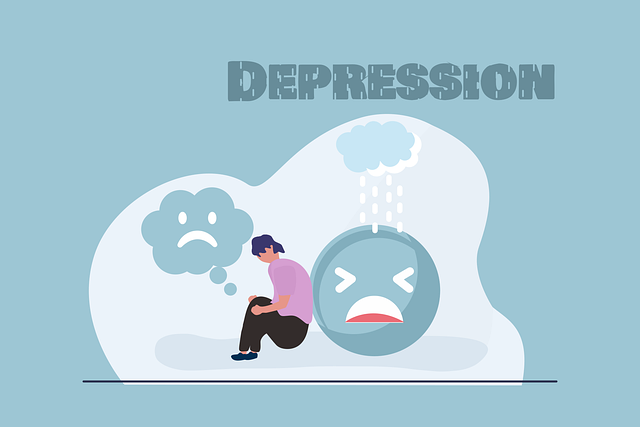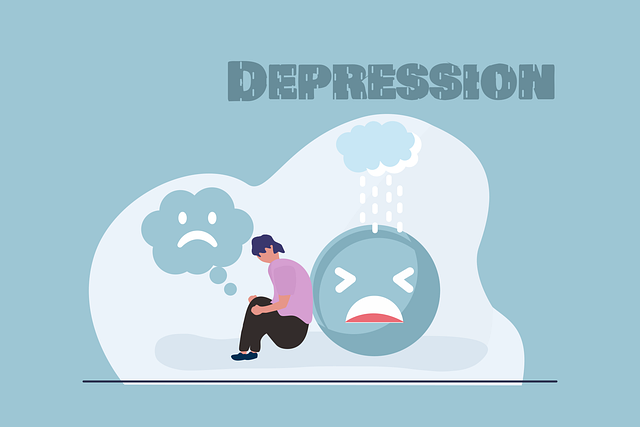In today’s diverse society, cultural sensitivity in mental healthcare is paramount. The field must adapt to serve a wide range of patients, including those from language minority groups. This article explores key aspects of cultural sensitivity, focusing on Denver’s growing need for Spanish-speaking therapy services. We delve into the importance of language accessibility, cultural competence’s impact on patient outcomes, and practical strategies for providing culturally sensitive care. By understanding these elements, mental health practitioners can better support all individuals seeking help.
- Understanding Cultural Sensitivity in Mental Healthcare
- The Importance of Language Accessibility in Therapy
- Denver's Spanish-Speaking Therapy Services: A Growing Need
- Cultural Competence and Its Impact on Patient Outcomes
- Strategies for Providing Culturally Sensitive Care
Understanding Cultural Sensitivity in Mental Healthcare

In the diverse landscape of mental healthcare, cultural sensitivity is a cornerstone of effective treatment. It involves recognizing and appreciating the unique cultural backgrounds, traditions, and values that shape an individual’s experience with mental health issues. Cultural sensitivity means understanding that a person’s identity extends beyond their race or ethnicity; it encompasses their social determinants of health, historical experiences, and community norms. For instance, consider the impact of language barriers in providing Denver Spanish speaking therapy, where communication becomes more than just words on a page but a conduit for building trust and understanding between patient and healthcare provider.
This awareness is crucial when addressing conditions like anxiety, which can manifest differently across cultures due to varying coping mechanisms and perceptions of stress. Healthcare provider cultural competency training plays a vital role in equipping professionals with the skills to navigate these nuances. By fostering inner strength development, sensitive practices enable individuals from diverse backgrounds to find tailored relief for their mental health concerns. This approach not only enhances therapeutic outcomes but also ensures that every patient receives care that respects and celebrates their cultural identity.
The Importance of Language Accessibility in Therapy

In the realm of mental healthcare practice, cultural sensitivity is paramount to ensuring effective and compassionate treatment for all individuals. One of the foundational aspects of this sensitivity lies in language accessibility. In a diverse society like Denver, where Spanish-speaking communities are prominent, providing services that cater to these linguistic needs is not just ideal but essential. Denver Spanish speaking therapy plays a crucial role in breaking down communication barriers, fostering trust, and enabling meaningful therapeutic relationships.
Mental health education programs design should incorporate cultural sensitivity training to equip professionals with the skills to navigate diverse linguistic landscapes. By offering therapy in multiple languages, including Spanish, healthcare providers can extend their reach to a broader audience. This approach not only respects the cultural identities of patients but also enhances access to mental health services for underserved communities. Such initiatives contribute to building a supportive ecosystem where trauma support services are inclusive and effective.
Denver's Spanish-Speaking Therapy Services: A Growing Need

In Denver, the growing Spanish-speaking population highlights a critical need for accessible mental healthcare services in their native language. Traditional therapy models often fall short when serving this demographic, as cultural barriers can hinder effective treatment. Many individuals from Spanish-speaking backgrounds may face challenges finding therapists who understand their unique experiences and can provide tailored support. This gap in services is particularly concerning given the rising rates of anxiety, depression, and other mental health concerns within these communities.
Denver’s Spanish-speaking therapy services are an essential step towards addressing this growing need. Specialized programs offer a safe space for individuals to connect with therapists who share similar cultural backgrounds, fostering trust and facilitating open communication. By providing therapy in Spanish, these services enable clients to develop coping skills tailored to their cultural context, promoting mental wellness. Furthermore, such initiatives can lead to increased awareness of available resources, encouraging more people to seek help when facing mental health crises and reducing the burden on emergency services with crisis intervention guidance.
Cultural Competence and Its Impact on Patient Outcomes

Cultural competence is a vital aspect of mental healthcare that significantly influences patient outcomes, especially when working with diverse populations. It involves understanding and respecting different cultural beliefs, values, and practices to deliver effective treatment. In Denver, where a significant portion of the population identifies as Hispanic or Latino, providing Spanish-speaking therapy services becomes essential for ensuring equitable access to care. This sensitivity ensures that patients can receive support in their native language, fostering trust and encouraging open communication.
By incorporating cultural competence, mental health professionals can better address the unique needs of each patient. For instance, certain cultural backgrounds may have specific views on mental illness, treatment, and healing, which can greatly impact a person’s willingness to seek help. A competent therapist who appreciates these nuances can adapt their approach, promoting positive thinking and encouraging open discussions about sensitive topics like depression prevention. This, in turn, can lead to improved patient satisfaction, better engagement in therapy, and ultimately, more successful treatment outcomes.
Strategies for Providing Culturally Sensitive Care















